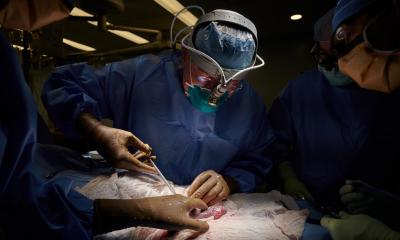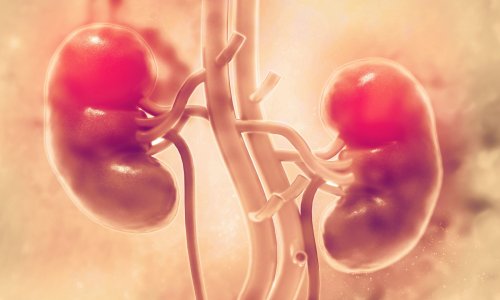News • Organ transplantation
Many discarded donor kidneys in fact still suitable
When researchers examined information on pairs of kidneys from the same donor in which 1 kidney was used but the other was discarded, the kidneys that were used tended to perform well even though they were similar in quality to their partner kidneys that were not used. The findings from a study provide further evidence that many of the donated kidneys that are discarded are in fact suitable for use.
Research has shown that kidney transplantation results in longer survival, better quality of life, and long-term cost savings compared with dialysis for patient with kidney failure. Unfortunately, because of a shortage of available kidneys, there is a long waitlist to receive a transplant, and approximately 5000 patients in the Unites States die each year waiting for a kidney transplant. Despite this shortage, almost 1 out of every 5 kidneys that are recovered from possible donors ends up being discarded - a proportion that has risen over the past decade. To understand why these kidneys are not being used, with the goal of improving kidney utilization, reducing wait times, and providing transplants to more patients, a team led by Sumit Mohan, MD, MPH and S. Ali Husain, MD, MPH (Columbia University Medical Center) analyzed information on deceased donors from whom both kidneys were procured but only one was transplanted from 2000-2015
Analyzing information on 88,209 donors
We therefore concluded that many of these discarded kidneys were in fact quite usable, and that systems-level changes are needed to encourage better utilization of this valuable but scarce resource.
S. Ali Husain, MD, MPH
"It is obviously impossible to tell with certainty what would have happened to any discarded kidney if it had been used instead. As a result, it has been difficult to categorize these discards as 'appropriate' or 'inappropriate.' We therefore aimed to identify kidney donors from whom 1 kidney was used but the partner kidney in the pair was discarded," Dr. Mohan explained." By doing so, we could control for donor characteristics to better understand the reasons for discard, and whether concerns about using certain kidneys were justified."
After analyzing information on 88,209 donors (176,418 kidneys), the researchers found that although the discarded kidneys in these pairs frequently had traits that are typically considered unappealing, the partner kidneys that shared many, if not all of the same traits performed well after being used for transplantation despite being used in older recipients with more medical problems. "We therefore concluded that many of these discarded kidneys were in fact quite usable, and that systems-level changes are needed to encourage better utilization of this valuable but scarce resource," said Dr. Husain.
Need for policy change
In an accompanying editorial, Matthew Kadatz, MD and John Gill, MD, MS (University of British Columbia) noted that the study provides compelling evidence of the need for policy change to ensure that all safely transplantable kidneys are used for transplantation. "The current discard of kidneys would be hard to explain to the families of deceased donors and is a disservice to the thousands of older age and diabetic wait-listed patients who would benefit from transplantation with these higher risk kidneys and who have consented to receive them," they wrote.
Source: American Society of Nephrology
25.12.2017










